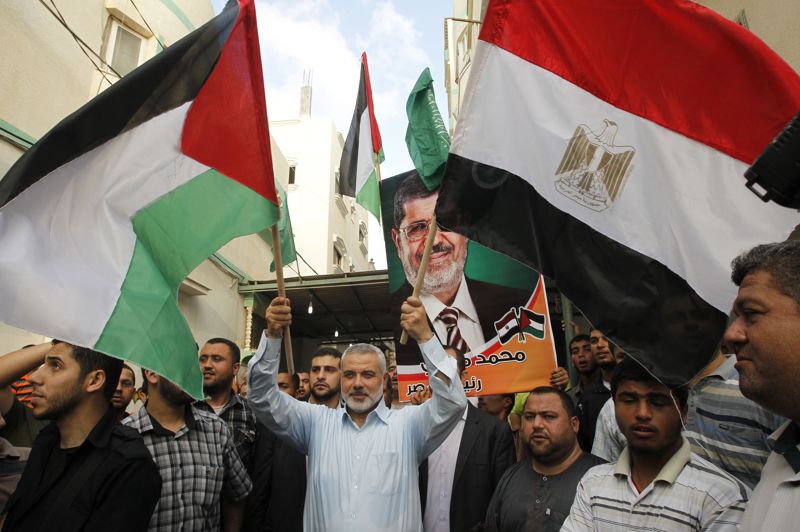CAIRO: Aiming to open dialogue with rivals of the US like Iran, Syria, and Russia and the Afghani Taliban movement, American president Barack Obama treads the steps of dialogue diplomacy. But can Obama follow the same diplomacy with the banned Muslim Brotherhood in Egypt?
Unfortunately, the answer is no.
There are four reasons that will prevent the Obama administration from holding any dialogue with the Brotherhood.
First, Obama’s consultants see the political discourse of the Muslim Brotherhood as conflicting with democratic values concerning equality and discrimination between citizens on the grounds of religion and gender.
Second on the list is the Brotherhood’s antagonistic attitude towards Israel.
Obama’s administration believes that the Brotherhood’s extreme stance towards Israel is manifest in two points: not recognizing Israel as a state and supporting the Hamas movement, Israel’s archenemy.
The third reason is the wrong American perception regarding the possibility of a return to violence by the Brotherhood, or backing it up.
Finally, is the US perception that the Brotherhood is an unofficial group, legally speaking, and so there can be no talks with it.
On closer inspection, these are only pretexts, not real reasons. The Americans use them to hide the actual reasons. Regarding the first point, it is true that the political and religious discourse of the Muslim Brotherhood seems regressive, particularly concerning the rights of Copts and women, but this is more a consequence of the closed political climate in Egypt which provides the Brotherhood no chance to develop their ideas easily.
Moreover, this does not apply to the Brotherhood as a whole, as there is a reformation current within the young generation which adopts a more liberal attitude and defends the rights of Copts and women to be president. At the same time, Obama’s administration will hold talks with Taliban which forbids women from leaving their homes.
Concerning the second reason, the Brotherhood’s attitude towards Israel is no less hostile than the attitude of the nationalists, the Nasserists and ordinary Arabs. The key is not in changing the Brotherhood’s discourse but in the transformation of Israel’s brutal policies towards Palestinians, and respecting international decisions which give Palestinians their rights.
Note that the Brotherhood’s discourse is tactically tailored to recruit more people who are willing to change the instant Israel offers tangible compromise to the Palestinians.
It is relevant here to talk about what the Jordanian Brotherhood did in 1994 when they did not oppose the peace agreement Jordan signed with Israel known as “Wady Araba. At the time strong oppositions stemmed from the Nasserists and nationalists not the Brotherhood. This was simply because there was a good relationship between the Brotherhood and Jordanian regime, which proves that the Muslim Brotherhood is characterized by pragmatism and political realism.
The third reason is altogether wrong, associated as it is, with Western stereotypes of the Muslim Brotherhood in general. They refer to what the group was like in the 40s and 50s, not in 2009. Now the Brotherhood has criminalized violence and seeks inclusion in political life.
As for the fourth reason, it is fictional. The Brotherhood are banned legally but they exist politically and socially and they shape the only major opposition force in Egypt.
I believe that the real motive for the non-existence of American dialogue with the Brotherhood is the American administration’s fear of upsetting the Egyptian regime, and the desire to maintain the historical alliance between the two sides on one hand, and the fear of upsetting Israel and maintaining its interests on the other.
The question is, does the Brotherhood want to talk to Obama? This I will discuss in my next column.
Khalil Al-Anani is an Egyptian expert on political Islam and democratization in the Middle East and is a senior fellow at Al-Ahram Foundation. E-mail: [email protected].


